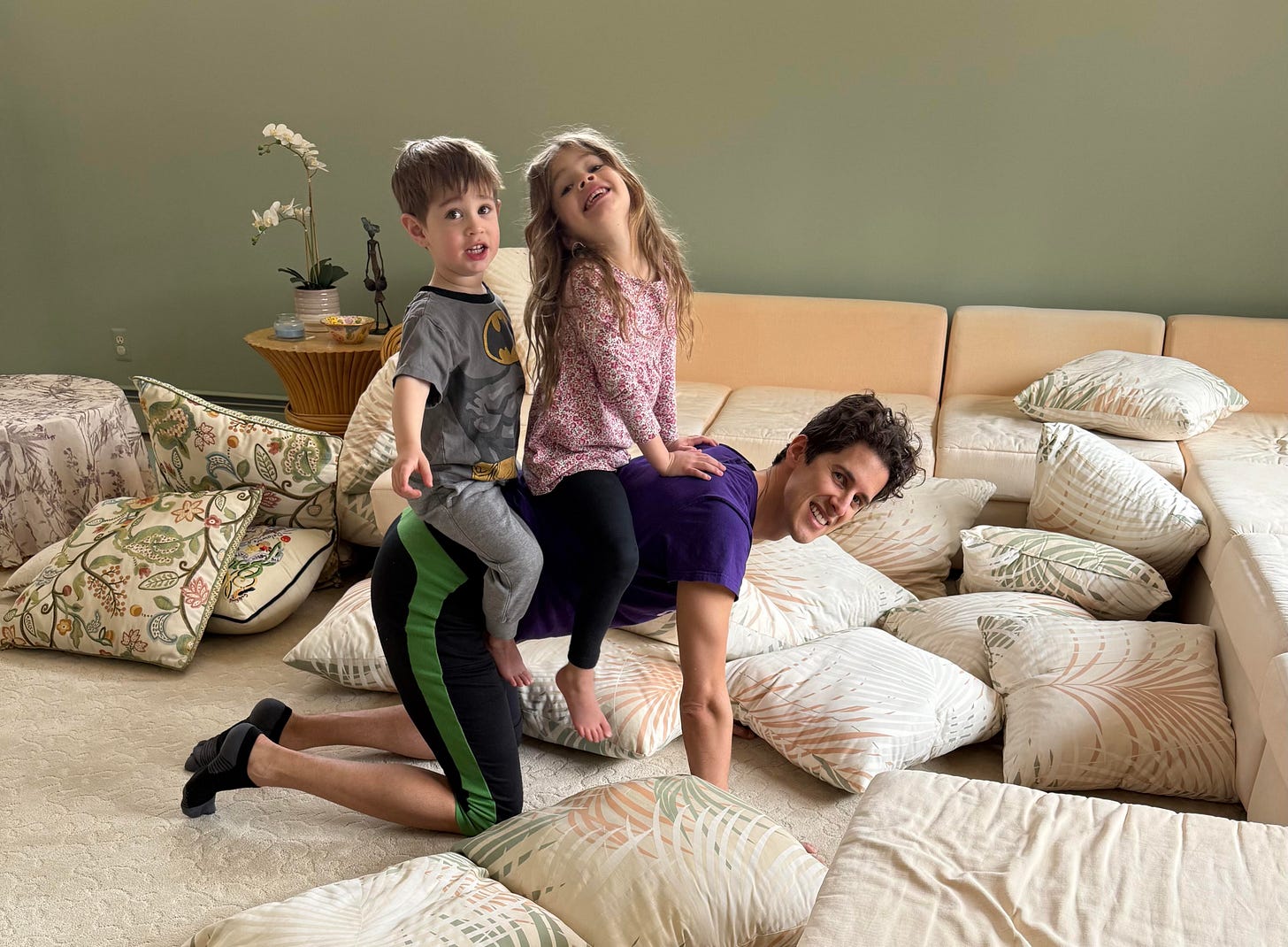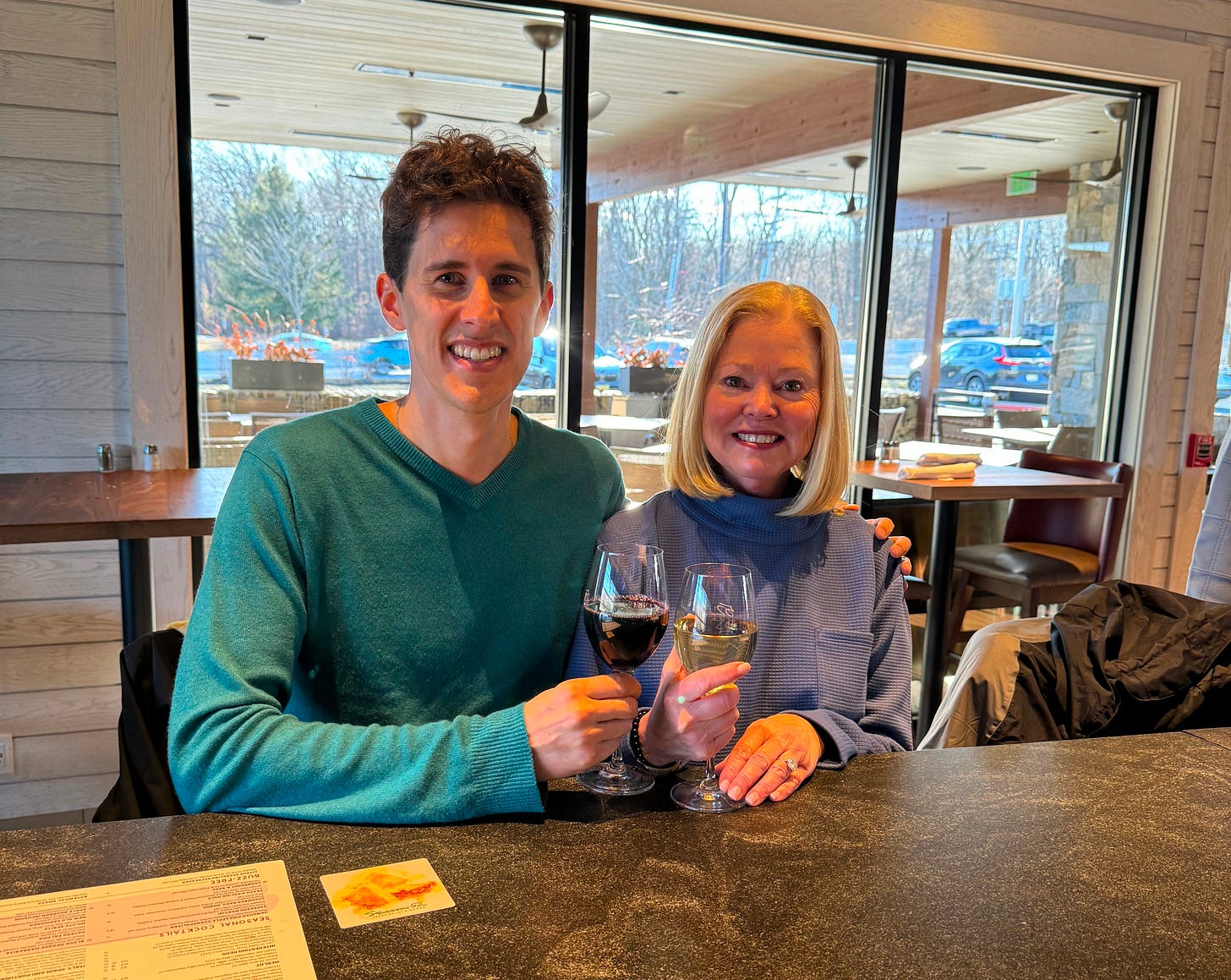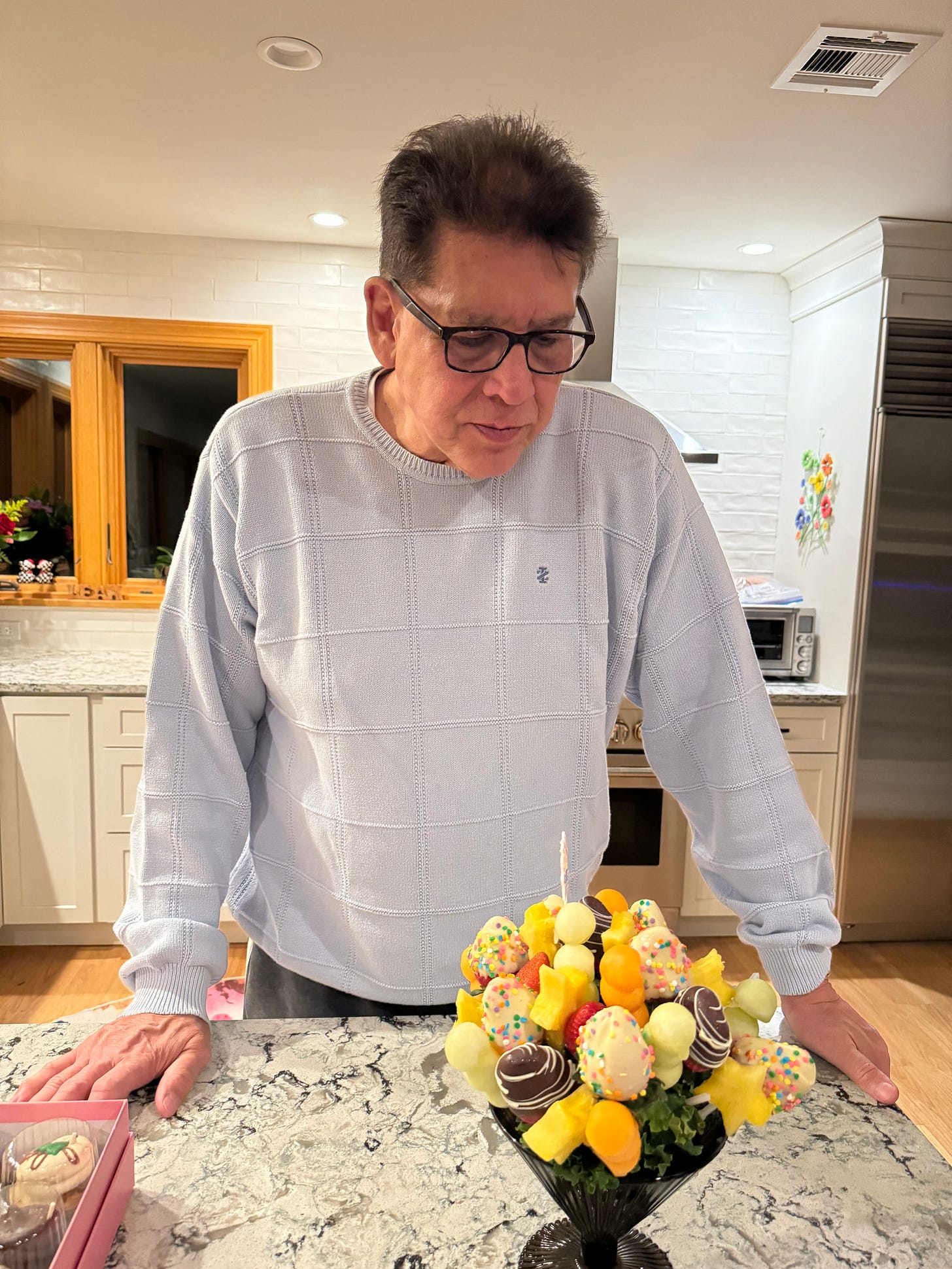Rebuilding. Again.
How a Trump-era career crash brought me back to my roots
It was January 2025, and life in Geneva, Switzerland was going well. I was wrapping up a secondment at the headquarters of a United Nations agency and was on the verge of receiving an offer for a long-term position. I had already started apartment hunting. I even bought a new bike to explore the city.
And then—plot twist. The humanitarian sector collapsed when Trump withdrew funding for foreign aid.
I fully recognize that my own derailed plans are nothing compared to the devastation faced by those whose survival depended on U.S. assistance (see what Bill Gates recently had to say on this topic). The ripple effects were catastrophic, hitting communities, organizations, and frontline staff who had dedicated their lives to humanitarian work, only to find themselves suddenly unemployed.
Losing a job is hard enough. But when the entire sector you’ve built your career around collapses, it feels like a part of you collapses with it.
As a yogi, I should have known how to handle the stress that followed. Breathe in, breathe out. Let go. Find comfort in the uncomfortable. But even I couldn’t shake the tightness in my chest, the restless, anxiety-ridden sleep, or the questions swirling through my mind:
Who am I without my work?
What am I going to do next?
What is my purpose?
For so long, I had thought I had figured things out. I had secured funding for major programs, worked in post-conflict countries, led emergency responses, and advocated in high-level meetings. I had taken risks—living in places where my queerness was taboo, where homosexuality was criminalized. Despite all that, I had built a career, a reputation, a life I was proud of. And along the way, I met so many incredible people.
Yet, in the blink of an eye, I was back in the U.S.—nearly eighteen years after I had first left as a wide-eyed college graduate eager to make a difference. I had departed during the final year of George W. Bush’s presidency, a time marked by the wars in Afghanistan and Iraq, with a global economic crisis looming.
Crises have a way of knocking us down and rubbing our faces in the dirt. If we survive them, we have a choice: stay down or get up and fight—even if it’s just for one more round.
This wasn’t my first time facing such a challenge. Shortly after the economic crisis, I had a brief stint in law school in New York. But the thought of taking on over $200,000 in debt felt suffocating. I longed to return to international work, to see if I could make a difference in development and humanitarianism. And I knew that wouldn’t happen if I was buried in debt.
So I dropped out of school and called my father—a retired professional wrestler turned middle school teacher—asking if he could pick me up. He didn’t hesitate.
As we drove from New York to New Jersey, I thought about Dad’s journey—how he had once performed under the glowing lights of Madison Square Garden as a WWE tag-team and intercontinental champion. In the eighties and early nineties, he was adored. Once, his fans swarmed our car, shaking it back and forth just to get a signature, my stomach flipping with every jolt.
But by the mid-nineties, his star had faded. The wrestling world—a ruthless, unforgiving machine—moved on without him. And suddenly, he had to figure out who he was beyond the ring.
It’s a story we don’t often hear: What happens to athletes when the game ends and crowds stop cheering? The truth is, many never figure it out. There are countless stories of wrestlers who turned to alcohol, drugs, or fell into depression—men and women who had spent their lives being larger-than-life figures, only to be discarded by the industry they gave their bodies and identities to.
But Dad had a Plan B: a degree in education. Still, becoming a teacher in New Jersey required certification—exams, paperwork, and waiting. So he started substitute teaching while preparing for his tests.
Mom was rebuilding, too. After years of (unpaid) work as a stay-at-home mother to three often monstrous boys, she opened a hair salon and threw herself into learning everything she could about running a business—from managing appointments to keeping the books. She ran that salon for twenty-five years. And my dad, always juggling multiple jobs, would pitch in when he could.
One of his shining moments came when he loudly booked a seventy-five-year-old woman’s appointment for a “blow job” instead of a “blow dry,” shocking the hairdressers and clients alike—until everyone burst out laughing.
“It’s okay,” the woman said over the phone, “Nothing I haven’t heard before.”
Fabulous. Like an older Samantha Jones.
Dad’s transition into teaching wasn’t easy. His first principal was an openly racist woman who didn’t think a Mexican wrestler belonged in her school. Gone were the days of facing off against Greg Valentine or The Undertaker. Now, it was Tito Santana vs. Karen the Bigot.
I remember watching him study on the couch, flipping through books—something I had never seen him do before. I sat nearby at our family computer, typing up a report for school.
Dad and I didn’t always get along. He was a straight, macho, conservative Chicano. I was a queer, artsy kid who fumbled over my feet and couldn’t dribble a basketball to save my life. Once, while playing for the recreational team my father coached, I even shot into the wrong hoop—and missed. To this day, I think that moment aged him five years.
And yet, here we were—the straight-A student watching his wrestler father struggle with something that didn’t come naturally.
“I know you can do it, Dad,” I had said.
A few weeks later, he approached me, beaming.
“Michael, I passed the test! By one question!”
I hugged and congratulated him. Later, I went back to my room and cried—not because we were one step closer to keeping our house, not because we were finally nearing the end of this strange, dark tunnel of uncertainty, but because I was proud. He did it. He was on his way.
Rebuilding. Again.
“Nothing in life comes easy,” Dad used to tell my brothers and me on road trips to his matches. “You’ve got to work for every penny.”
I didn’t make many pennies when I moved to Honduras to spend two years working with a grassroots youth empowerment organization, but I loved every moment—mentoring young people, designing projects, and teaching yoga around town. That experience led to three years with an international nonprofit in Nicaragua, then a move to Sierra Leone to lead humanitarian programming during and after Ebola. Eventually, I stepped into a director role—first in Sierra Leone, then in Kenya.
The job I had lined up in Geneva was supposed to be the culmination of all of this—an opportunity to influence a nearly $2 billion organization and reshape how it worked with local frontline actors. Having that taken away felt like the carpet had been pulled out from beneath me. I had no choice but to take a one-way trip back to a country that felt more like a setting from a dystopian Suzanne Collins novel than the home I once knew.
New Jersey in February was blanketed in snow, eerily quiet. Deer gathered in our yard, drawn by Mom’s offerings of tortillas. The occasional red fox skittered across the ice. Thankfully, my parents were still alive and healthy. Dad’s knee gave him trouble. He no longer wrestled, but he still traveled for signings. He even did podcasts and recorded Cameos—usually just before The Price Is Right came on.
I helped him with technology, shoveled the driveway after a blizzard, and salted it with blue ice-melting salt—something I hadn’t even known existed. After years in warmer climates, I hadn’t experienced winter like this in ages.
I slept in my childhood bedroom—my former cave—virtually untouched since 2003. I dug through mementos—photo albums, old high school artwork, and an inordinate amount of Buffy memorabilia. More questions swirled.
Did I make the wrong choice somewhere along the way?
Why was this happening?
What lesson was I supposed to learn?
I let my family take care of me—something I’m not great as someone often called “hyper-independent”—while I tried to formulate my next move. People kept telling me I had “transferable skills,” but that didn’t help me figure out where to go when the job market was flooded and everything felt uncertain.
Breathe in, breathe out. Let go. Find comfort in the uncomfortable.
Tara, one of my closest childhood friends—the person I dedicated my first book to—sat with me for a glass of wine, her two boys screaming in the background, and offered a piece of unsolicited life advice.
“Maybe you should consider who and what you want around you,” she said.
And that’s when the puzzle pieces started to fit together.
If I was going to stay in the U.S. for this next chapter of Trump 2.0, I needed to root myself somewhere. Sure, I could book a flight to a tropical destination and disappear. But I felt like I needed to stay, to build, to reconnect.
I was home for Mom’s birthday—an occasion I hadn’t been around for in nearly twenty years, made even more special by the fact that it was a seventy-year milestone. I got to see my niece and nephews, endless sources of laughter and entertainment. We played games of “keepy-uppy” with floating balloons, made obstacle courses out of pillows, and danced across the floor, pretending it was lava. We stacked red cardboard bricks as high as they could go, only for my two-year-old nephew to gleefully knock them down, cackling like a tiny villain every time.
If I was staying, I wanted to do it with intention. I wanted to be present—with my family, my friends, the people I had neglected in the whirlwind of my global career.
Like Dad, I reconnected with my passions, taking things one step at a time. I kept up my yoga practice, even when it was hard to focus. I wrote, dusting off old pieces that had sat untouched for years. I started working with Ashley Proud, a career coach and a former colleague who had also transitioned from international humanitarian work to life in the U.S. (Check out her website!)
After our first session, Ashley sent me a document with twenty-one questions designed to stop me in my tracks, to make me think—not about what I should be doing, but about what I wanted to do.
I started to imagine.
And then I heard Mom call out, “Mikey! Time for dinner!”
An endearing, priceless thing I know I’ll ache to hear again when her voice is no longer there. But also, a sign.
When I told her I’d decided to move to New York, her face melted into a Moira Rose-like expression of exaggerated dismay. She was going to miss me, but at least I’d be close. She and Dad were worried about my safety, as if I hadn’t already survived living on five continents.
I was going to miss them too.
But New York made the most sense—close enough to New Jersey for birthdays and family events, close enough to still be a present son, brother, and guncle. I’d reconnect with friends from Latin America, Sierra Leone, and my writing circles. I’d find a yoga studio—maybe even start teaching again. And dating apps? Let’s fire those things up.
I would keep writing. I had picked up a few consultancies in the nonprofit sector. I’d apply for jobs on my own time, knowing that despite the market’s competitiveness, I had skills, experience, and value to offer.
In a way, I had already started making a new tower. One brick at a time. A little wobbly, but the foundation was already there—knowledge, lived experience, connections, memories, discernment. And an understanding that life is so much more than what we do or who employs us.
The way we show up for each other is the secret sauce. The way we give and receive love.
Dad was the one to drive me to the train station. As he shuttled me—just as he had when he wrestled, coached, or taught—I thought about what this man had created, and what he continues to create, even now, well into his seventies. He retired from teaching, but he has never stopped. Neither has Mom.
They are, and always have been, the hardest-working people I’ve ever met.
They’ve taught me a lot. And now, I get to apply those lessons as I venture into the unknown.
Rebuilding. Again.







Wonderful post! It's nice to get to know you better and watch your journey unfold. You've already accomplished so much, and I know there's so much more for you to look forward to:)
What a ride! So sorry to hear about the job loss but glad to know you're finding your feet at home again!